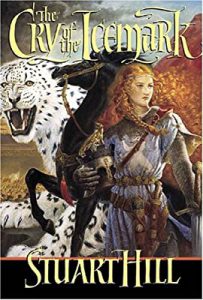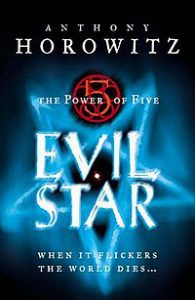This is mark Joseph “young” blog entry #513, on the subject of Another Year.
Once again, as we did last year in web log post #490: Looking Back and in previous years linked successively back from there, we are recapping everything published in the past year–sort of.
I say “sort of” because once again some material is being omitted. There have been a few hundred posts to the Christian Gamers Guild Bible Study which can be accessed there but aren’t really fully indexed anywhere. Meanwhile, the dozen articles in the Faith in Play series and the similar dozen in the RPG-ology series were just indexed on the Christian Gamers Guild site in Christian Gamers Guild 2024 Index, and won’t be repeated here. I also posted several days a week on my Patreon web log, which announces almost everything I publish elsewhere on the same day it’s published, but again omitting the Bible study posts. There is also a bi-monthly review of my work at Goodreads under the title The Ides of Mark, now at eighty-six installments, which does include some information about those Bible Study materials.
I continued posting the tenth Multiverser novel In Version, featuring Robert Slade, James Beam, Joseph Kondor, and Derek Brown, from chapter 92 through the end, and then after uploading support site character papers turned to the eleventh, Con Version, continuing stories for Derek Brown, Tomiko Takano, and a new character, Brian Cooper, through chapter 122. Behind-the-writings posts on these two books dominated the web log this year:
- #491: Verser Ventures covering chapters 85 through 96 of In Version;
- #493: Verser Entanglements covering chapters 97 through 108 of In Version;
- #494: Warring Worlds covering chapters 109 through 120 of In Version;
- #495: World Crises covering chapters 121 through 132 of In Version;
- #496: Character Setbacks covering chapters 133 through 144 of In Version;
- #498: Characters Restart covering chapters 1 through 12 of Con Version.
- #501: Characters Orienting covering chapters 13 through 24 of Con Version;
- #502: Verser Setbacks covering chapters 25 through 36 of Con Version;
- #503: Versers Progress covering chapters 37 through 48 of Con Version;
- #505: Versers Advance covering chapters 49 through 60 of Con Version;
- #506: Characters Involved covering chapters 61 through 72 of Con Version;
- #509: Character Challenges covering chapters 73 through 84 of Con Version;
- #510: Versers Debate covering chapters 85 through 96 of Con Version;
- #511: Characters Change covering chapters 97 through 108 of Con Version;
- #512: Versers Work covering chapters 109 through 120 of Con Version;
Late in the year my collaborator Eric R. Ashley and I finished the fourteenth novel, Verse a Tile, and began writing the fifteenth, When Verse Comes to Versed. I finished setting up the twelfth, A Dozen Verses, and have begun that work on Multiverser: The Thirteenth Story.
Depending on how you count I published two or three books this year. That’s because An Analytical Commentary on The Book of I Corinthians had to be released in two volumes due to its size. Before that, my little light horror novella Corpoise was released. I am working on editing and setup for the II Corinthians commentary.
There was some time travel work, in web log posts:
- #492: Indiana Jones and the Dial of Destiny Temporal Anomalies;
- #499: Temporal Anomalies in Dean Koontz’ Lightning.
A couple decades back I told a story in an installment of Game Ideas Unlimited. That series was lost, almost entirely, so I retold the story in an installment of RPG-ology. Then Regis Panier and the staff of the French edition of Places to Go, People to Be found many of the lost articles in The Internet Archive, and I began restoring them through RPG-ology–but when I got to this one, it was too like the previous retelling to include in that series, yet too different to allow it to fade into obscurity, so I republished it as web log post #497: Game Ideas Unlimited: Vivid Recovered.
When I hit the five hundredth entry in this mark Joseph “young” web log, I decided to take a look back in what I dubbed #500: A Five Cent Review, in which I listed, linked, and briefly identified sixty-three of the previous articles I thought were memorable.
I was asked a couple questions which warranted web log level answers. The first was a bit of a biographical, #504: Why I Started Writing, somewhat self-explanatory. Then a Pagan friend (thank you again, Harry) challenged Christian legalism, so I wrote #508: Christians and the Law. I also wrote #507: Something About New Jersey’s 2024 Election in advance of the event; I did not follow it up, because there were no surprises and nothing of interest.
Early in the year Ken Goudsward of Dimensionfold Publishing put me on their podcast, as the Time Travel Episode with Mark Joseph Young. I was also in another podcast a month or so later, Christian Music Network Presents–Season 4, Episode 17 with Mark J Young, so if you wanted to see and hear me, that’s two ways to do so.
I wrote a couple book reviews on GoodReads, but didn’t read that many books this year, really.
In other news, my youngest got married on a beach in September. AnimeNEXT wasn’t held due to some administrative error. While I was hospitalized for two weeks my wife broke a leg, had surgery, and went to rehab, and is presently not permitted to walk. Valdron’s directors decided to move toward republishing Multiverser, and had me create a Valdron/M.J.Young Linktree to that end, although our art department is holding up developments there. I edited the third book in my friend’s trilogy, BeautyAndTheBell.
So as we begin 2025, there’s a lot behind and more ahead. You can keep up to date through Patreon and other social media.









